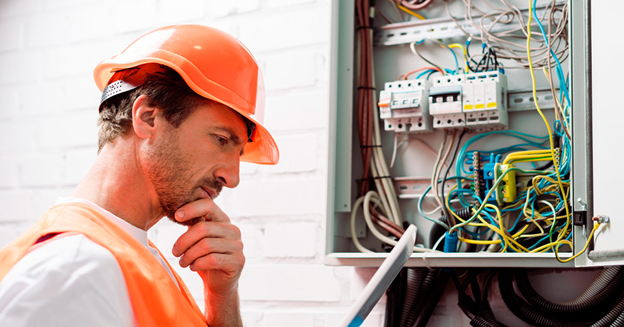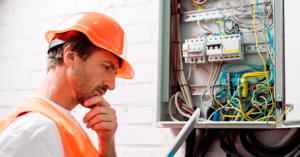6 Tips for Maintaining Your Home’s Electrical System

Your home’s electrical system is a critical part of daily life. When it’s working, you barely think about it. But when it isn’t, it can disrupt everything, from lighting to heating. Electrical maintenance may sound complicated, but a few simple practices can keep your home safe and running smoothly.
Here are six easy tips that any homeowner can follow to help maintain their electrical system.
1. Regularly Inspect Your Wiring
One of the most important ways to maintain your electrical system is by keeping an eye on your home’s wiring. Wiring can wear out over time, especially in older homes. Damaged wiring can lead to electrical fires or shorts, which pose serious risks.
Look for any exposed, frayed, or discolored wires, and listen for any buzzing sounds around outlets. If you notice any unusual signs, it’s better to call a professional right away. Regular checks can prevent bigger issues down the line.
2. Don’t Overload Your Outlets
In today’s world, we have more devices than ever to plug in, but that doesn’t mean every outlet can handle them all. Plugging too many appliances into one outlet can overheat it and potentially cause a fire. Use power strips with surge protectors for multiple devices, and avoid “daisy-chaining” power strips together. Spread out your devices across multiple outlets in the house to distribute the load safely.
3. Replace Old Appliances
Older appliances often require more power and may not be compatible with modern wiring. They can also lack safety features that newer models have, increasing the risk of electrical issues. If you’re still using outdated appliances, consider upgrading them.
Newer models are usually more energy-efficient, which can also lower your electricity bill. Replacing old appliances is a small investment that could prevent costly problems later.
4. Test Your Safety Devices
Every home should have safety devices like smoke detectors, carbon monoxide detectors, and ground fault circuit interrupters (GFCIs). These are designed to protect you in case of an electrical issue. Check the batteries in your smoke and CO detectors every six months.
Test your GFCIs by pressing the “test” and “reset” buttons; if they don’t respond, they might need to be replaced. Keeping these devices functional is essential for household safety.
5. Hire a Qualified Residential Electrician
When you’re dealing with electrical work, sometimes a DIY approach isn’t enough. Hiring a qualified residential electrician can make a big difference. They have the knowledge to inspect your system for any hidden issues and ensure everything is up to code.
A residential electrician can also handle more complex tasks like rewiring or upgrading your panel, which can be dangerous for untrained hands.
6. Keep Your Electrical Panel Accessible and Clear
Your electrical panel is the heart of your home’s electrical system. Make sure it’s accessible at all times, as it’s the first place you’ll go in an emergency to cut off power. Avoid storing items close to it to reduce any risk of obstruction or accidental damage.
Label the switches and circuits in your panel so you know exactly what controls each area. This will help you handle minor issues quickly without the guesswork.
Conclusion
Maintaining your home’s electrical system doesn’t need to be overwhelming. By following these simple steps, you can help prevent problems, keep your home safe, and potentially save money on repairs in the future.






